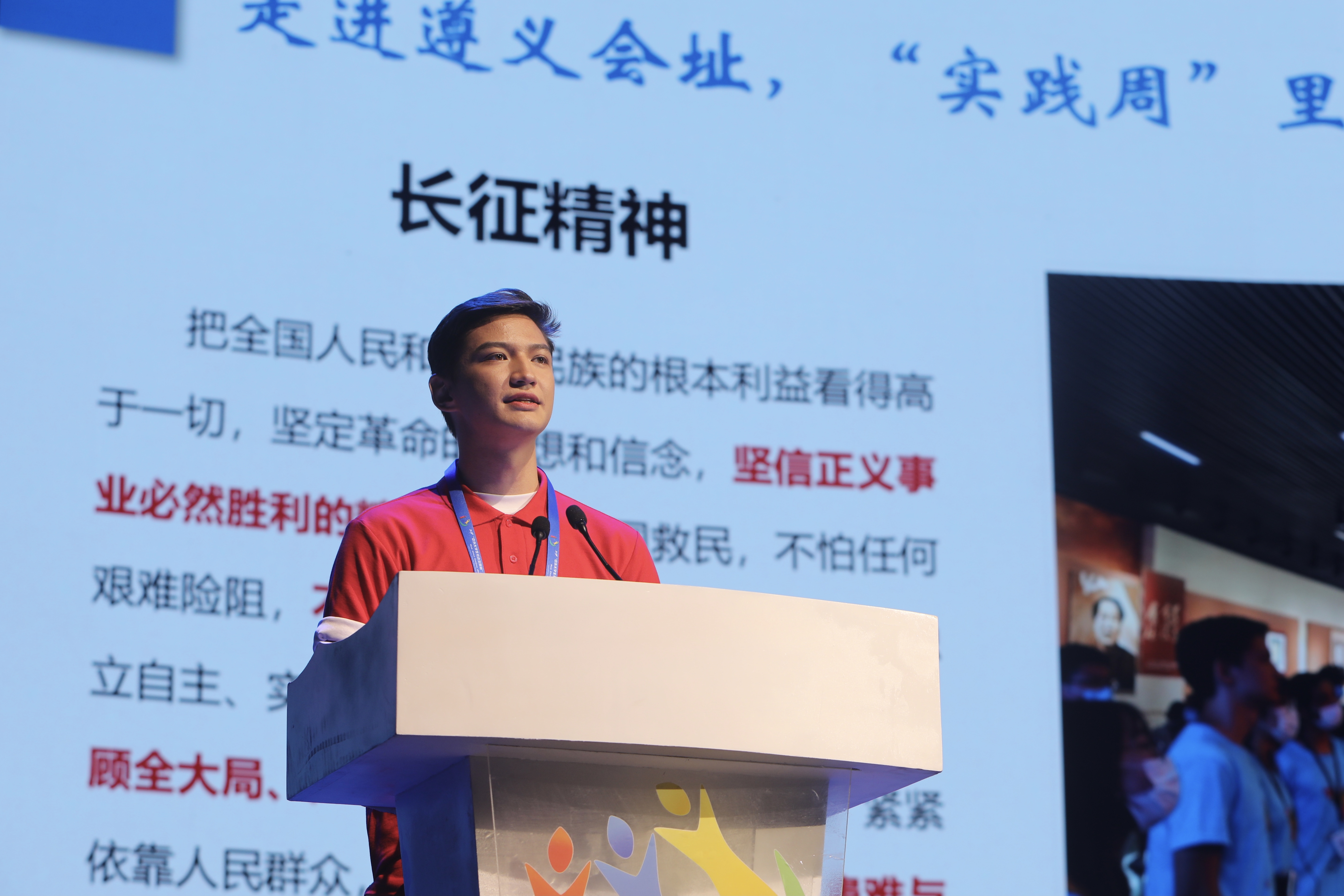Foreign youth explore cultural exchanges in China
- By Cui Can
 0 Comment(s)
0 Comment(s) Print
Print E-mail China.org.cn, September 28, 2021
E-mail China.org.cn, September 28, 2021
More than 100 students from 39 countries, including the US, Japan, Pakistan, Yemen, Thailand, and China, visited Beijing for three days, Sunday to Tuesday, where they experienced traditional Chinese culture, discovered the latest social and economic development, and exchanged ideas on understanding China.

The participating foreigners all currently live and study in 30 Chinese colleges and universities. The Beijing trip was part of a series events under the International Students Field Study Program, which aims to provide opportunities for foreign students to learn about the CPC's history, gain an in-depth understanding of modern China, and learn how to better tell the stories of China to the world.
Organized by the All-China Youth Federation and All-China Students' Federation, the series of events attracted over 500 domestic and foreign students from more than 70 countries to learn about China by visiting well-known historical sites, villages, and high-tech companies across the country.
Finding timeless spirit in an old revolutionary base
Before coming to Zunyi, most of the students knew little about the old revolutionary base located in the mountainous Guizhou province. Aleks Van, an American student from Zhejiang University, was one of those eager to learn more about the history of CPC.

After visiting the Zunyi Conference Memorial Museum, Aleks learned that Zunyi is a city that played a crucial role in the turning point that led to the ultimate success of the Long March.
Aleks said that what impressed him most was an exhibit in the museum, encapsulating a piece of worn-out clothing owned by a Red Army soldier. "Though they suffered many hardships during the Long March, these soldiers still did many things for the people and valued the people's interests most of all," he said at a communication activity held in Beijing Monday.
He believes that the Long March spirit continues to inspire Chinese people to chase their dreams for a brighter future.
"The new Long March today, although without snow-topped mountains and grasslands, still calls for the courage of Chinese people to keep going forward in spite of all dangers and difficulties," Aleks said, adding that the spirit inherited by generations of Chinese people has led to many great achievements, such as poverty alleviation and rural revitalization.
"During my tours, I saw that local Chinese work really hard and strive for happiness. They want to alleviate poverty and live a better life."
Aleks said he would like to travel to more places across the country in the future and expressed his hope of serving as a bridge to promote exchanges and dialogue between China and the rest of the world. "Like the American journalist Edgar Snow, who wrote the Red Star Over China, I'd like to contribute my own efforts in presenting a true and panoramic view of China."
Friendship beyond nations
This summer, Jebessa Dawit Abdisa, a student from Ethiopia who majored in computer science and technology at Changzhou University, found his connection with China's latest technological development.

At the communication activity held in Beijing on Monday, Dawit said that through his trip to Changzhou Locomotive Company and Rail Transit Industrial Park, he learned that the locomotives produced in Changzhou play an important role in African railway construction. The red and yellow locomotive in the museum reminds him of the time when he took the same train that runs on the Mombasa-Nairobi Standard Gauge Railway in Africa.
The Chinse-built railway began operation in 2017, making it the first railway in Kenya since the country's independence.
"In the past, African railways were very backward and had been in disrepair for a long time. After the operation of these railways, traveling by Chinese trains became the most fashionable thing on the African prairie," Dawit said, adding that he took the train several times to visit his Kenyan friends. "It used to spend a day and a night to get there, but now it takes only three to four hours by train."
"The locomotives made in China facilitate friendship and bring hope," he said. "My hometown is improving, and people in Africa are living a happier life."
Thanks to the win-win cooperation between China and Africa, African people can reap huge benefits under the Belt and Road Initiative, he said. "As the largest developing country in the world, China has never forgotten its African brothers. Guided by the vision of building a community with a shared future for mankind, China has demonstrated its sense of responsibility as a major country."
Zhang Xi, a teacher from Northwestern Polytechnical University, pointed out that the significance of the series of activities lies in promoting cross-nation, people-to-people exchanges.
"Young people can play an important role in facilitating dialogue between China and the rest of the world and make up for the gap in understanding," He said. "Through various visits, young foreigners can learn about the real China. In the same way, Chinese can learn about the world through exchanges."






Go to Forum >>0 Comment(s)